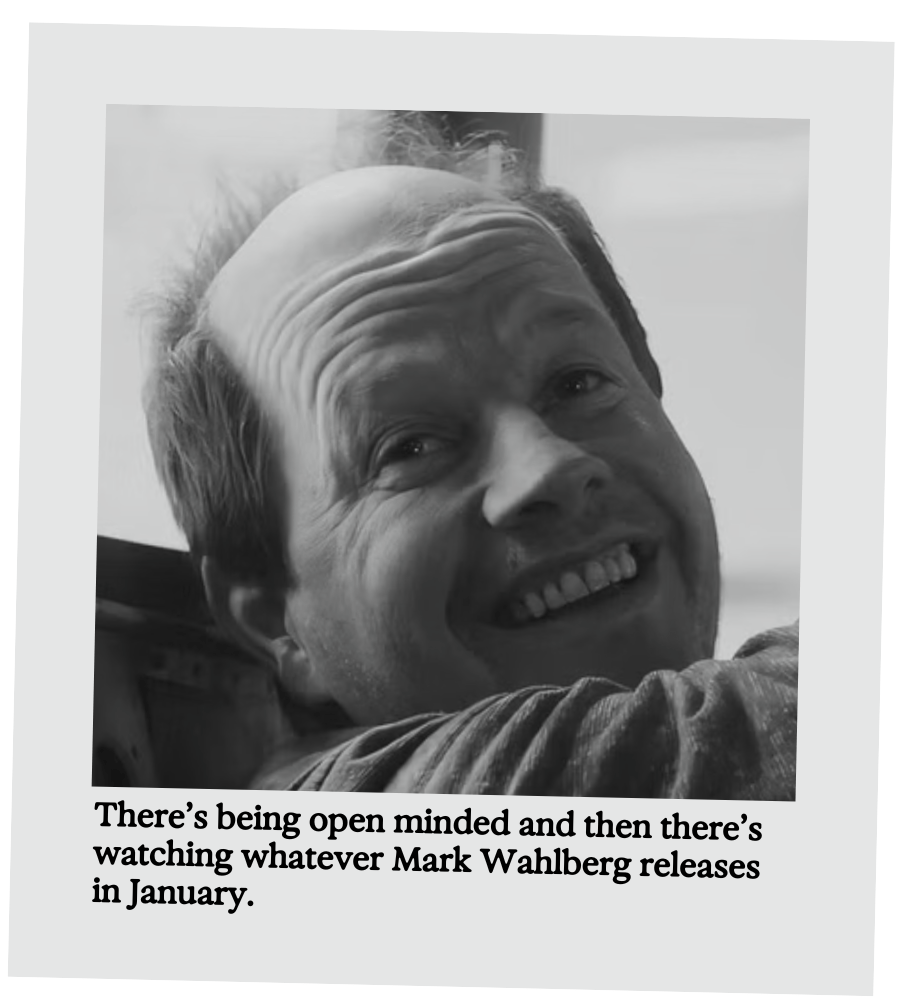



Hey Neighbor. This evening, Notre Dame will play Georgia in the Sugar Bowl. Most viewers will root for the Irish, who have the second largest fan base in college football despite being pretty bad for the last few decades. Why is this? The history, sure, but what really sets Notre Dame apart is that it’s the only explicitly non-WASPy “elite” school in America.
A lot of people want to watch dudes named Todd get their teeth knocked in.
If you’d rather not receive this newsletter, click here.


🍸 Let Us Pay for Your Desk Salads: Upper Middle Research, our research platform, pays up to $300-an-hour for surveys. Join and defray the cost of all those gifts.
🥃 Eavesdrop on Your Would-Be Overlords. Want a byte-sized Hacker News? Try TLDR’s free daily newsletter. TLDR covers the most interesting tech and science news in just 5 minutes.
🥂 Share with a friend: Thanks to folks like you, Upper Middle is growing fast. Please help us ensure that trend continues by sharing what we do with a friend.


Hands Down Some Of The Best Credit Cards Of 2025
Pay No Interest Until Nearly 2027 AND Earn 5% Cash Back


→ As white-collar workers returned to the office in 2024, searches for “coworker” on the adult site Pornhub spiked 71%, and “workplace fantasy” bounced 57%. “Modesty” also rose 77%. “Professional attire” is no longer just armor for careerists; it’s fetish gear. (READ MORE)
→ Linkedin scammers continue to offer professionals with minimal executive experience or inflated startup titles board positions. The worst offender is the company Boardsi, which promises up to $30K a year to would-be board members while charging $200 per month for the matching services. (Some of the board positions probably even exist!) As tech layoffs continue and middle management gets gutted, it’s reasonable to expect more scams praying on the vanity and desperation of the professional managerial class. [1]
→ The SEC is a cultural exchange program. According to a new poll from the American Association of University Professors, over a quarter of southern faculty applied for out-of-state jobs in 2024 and 28% plan to do so in 2025. The exodus comes as 7 in 10 faculty rate their school’s political atmosphere “poor” or “very poor.” Curiously, this is also happening as more students from northern states head south in search of “traditional” college experiences. The result? A very, very traditional experience. (READ MORE)



Upper Middle Research identifies readers with professional expertise and matches them with surveys and focus groups that pay up to $300 an hour (probably during lunch) and keep them abreast of what’s going on in their field.


Why “engaged” viewers can’t look away in January.
In the early 2010s, after Netflix got into original content and The Green Hornet and Contraband flopped, Hollywood execs crossed out January on their calendars and scribbled “Dumpuary.” Between the first day of the new year and Valentine’s Day – when theatrical attendance dips due to bad weather and post-holiday scrimping – studios now drop the duds. Last year we got Argylle and Madam Web. This year we’re getting Flight Risk (Air Force One meets Con Air), Back in Action (Mr. And Mrs. Smith meets Gray Man), and Wolf Man (yup). Still, few of us will stop binging.
We feel an obligation to eat out of the trash can.
In 1969, film critic and proto-Substacker Pauline Kael published “Trash, Art, and the Movies,” a 14000ish-word takedown of 2001: A Space Odyssey, a film she found joyless and obtuse. She argued that Stanley Kubrick’s auteurism, self-seriousness, and ambition did not impel the viewer to take his work a more seriously than Wild in the Streets, a farce in which 14-year-olds get the votes and make everyone over 35 take LSD. [2]
“Movie art is not the opposite of what we have always enjoyed in movies,” she wrote. “It is not to be found in a return to that official high culture, it is what we have always found good in movies…. pleasure we have been taking from bits and pieces.”
This idea that true cultural engagement requires abandoning all forms of snobbery and pawing through the trash like a raccoon hunting for the savory scraps of charcuterie caught on in a big way.
In 2025, members of the Upper Middle – most of whom either work in the “culture” industry or have better dressed friends who do – largely eschew cultural hierarchy (the clear and classist distinction between 2001 as art and Wild in the Streets as commerce) in favor of eclecticism. It’s not only normal to like Oppenheimer and Venom or Tar and Sonic the Hedgehog, it’s weird not to. Kael’s case for cultural omnivorousness (radical at the time) became accepted wisdom.
That may be for the best – Venom is great in its own way – but cultivating eclectic taste requires engaging with all kind of stuff, which turns out to be way more time consuming that simply cultivating high-brow taste. Sure, The Brutalist is 215 minutes long, but a Wolf Man-Back in Action double feature is only 18 minutes shorter. Watching all three takes a whole Saturday. The average American now spends 1 hour and 49 minutes per day watching stuff.
Call it Kael’s Paradox: Egalitarian media consumption requires an amount of free time only available to the elite.

That said, there’s a difference between engaging and deeply engaging. As the good-looking Swedish scholar (and friend of this newsletter) Johan Lindell has pointed out: The people who watch everything differentiate their taste not by what consume, but by how deeply they engage with it. In other words, it’s considered to de rigeur to watch a few episodes of Love Island, but declasse to know that Andrew did the milk challenge with Coco in Casa Amor. By definition, this means we, the cultural trash pandas, waste time watching stuff we don’t care about (which might explain the ongoing semi-relevance of SNL).
Our eclecticism may be admirable anti-hierarchical – punk, postmodern, patronizing – but come Dumpuary, when those of us used to pawing through the trash tend to find… more trash, it can also become an obligation. Snobs suck, but we can also take a month off from what Kael acolyte Roger Ebert described as anti-snob snobbery without changing teams. Even raccoons exercise a bit of discernment.


→ If NYE celebrations were any indication, we’re doing drugs again. But we’re not all doing the same drugs. There seems to be a distinct generational divide between Millennials taking psychedelics [3] (also ketamine) and Gen Zers railing cocaine. Similar behavior, but very different kinds of parties.
→ King Charles III has stripped Cadbury of its Royal Warrant, the seal given to “suppliers” of the English royal family. Cadbury, which has featured the Royal Arms on products for 170 years, was sold to Kraft Foods in 2010 before being spun off as a subsidiary of Mondelez International. The brand has also been the target of protests focused on its sourcing and dealings in Russia. King Chuck’s decision strips the not-British, not-so-great brand of its prestige. As ailing prestige brands like Sports Illustrated, Sperry, and Hunter Boots get gobbled up by licensing-focused portfolios like Authentic Brands, Americans will have to figure out their own approach to headshoting Zombie brands. (READ MORE)
→ Philomena Cunk is a sex symbol. Fight me.
→ The Brutalist, Brady Corbet’s epic now playing in theaters that serve cocktails, is based in part on the life of the architect Marcel Breuer. Interestingly, Breuer’s work remains at least a bit affordable. A Breuer house just north of New York sold for less than $2M and there are Breuer houses in Poughkeepsie [4] that would probably get half of that. It’s unlikely the film resurrects the architectural style – Bauhaus boys get all the press – but it may serve as a reminder that brutalists built some cool homes. (TAKE A TOUR)
→ Engineers are starting to experiment with AI for vacation planning, leverage machine learning to figure out how best to optimize multi city jaunts. The Grand Tour is going to get a hell of a lot more efficient as AI travel agents come online. Expect to use one within the next three years. (READ MORE)

What we talk about when we talk about couch time.
Shortly after she being named Netflix’s Chief Content Officer in 2023, Bela Bajaria described her ideal show as a “gourmet cheeseburger,” full of high-end ingredients, but also hearty. This remark, was broadly interpreted as Bajaria (self-identifies as not “an intellectual”) describing Netflix’s upper middle-brow sensibility. In fact, it was Bajaria describing an algorithm designed to keep cultural gatekeepers at bay.
The first gourmet cheeseburger of note was introduced onto the menu at DB Bistro Moderne in 2001 by Chef Daniel Boulud. The burger, a sirloin patty stuffed with foie gras, short rib, and black truffles (riffing on the traditional French “Juicy Lucy”), was an instant hit. And it’s no mystery why. Not only was the Boulud’s burger umami to the max, it was a truly original idea: a white-tablecloth bistro gut bomb with a pop sensibility. Radiohead for gourmands. Hockney for Bourdain guys.
By 2003, gourmet cheeseburgers were everywhere.
Whereas the first gourmet cheeseburger was an inventive postmodern (or “nobrow”) piece of artistry, the knockoffs were cynical, low-brow attempts to dress up ground beef. The pates, gruyere, aiolis, and gold dust layered over the burgers by Boulud-chasers, were references to fine dining meant to mislead diners into thinking they were consuming something special.
Bajaria isn’t Bouloud. She’s in the yuzu aioli business. Netflix’s programming reflects that. Bridgerton is Gilmore Girls wrapped in Austen. Stranger Things is It topped with Lovecraft. Squid Game is Survivor drizzled in Marx. These shows may appeal to folks who get the references, but that’s not really the point. The point is that Netflix has also streamed Gilmore Girls, reality TV, and It.
Appropriately, Bajaria made her “gourmet cheeseburger” comment at an industry event where sliders were being served. Unlike Bouloud, who , she makes burgers just satisfying enough for diners want another.

→ The term “deep value” is cropping up more and more on finance Twitter and in the pages of Bloomberg. The idea of hunting for undervalued companies with strong fundamentals is definitely at odds with what worked in 2024, when Carvana stock hit 8.45x rival CarMax’s multiple, and represents a defensive posture going into what’s likely to be a pretty crazy year. (READ AN EXAMPLE)
→ Trump’s tariff rhetoric has become highly reminiscent of a the scene in Blazing Saddles where Sheriff Bart escapes a mob by pointing a gun at his own head and saying “Freeze or the (*Gong Sound*) gets it.” (WATCH IT)
→ It’s worth reiterating: Financial predictions are dumb. That’s not because no one knows anything, it’s because the people who do financial predication know one thing: They’ll could get fired for being extremely wrong. As such, they tend to cluster their predictions in service of defending their jobs. Ass covering may be a good idea, but it sure as shit ain’t insight.


[1] I bring this up largely because I get targeted with these things daily. I’m not sure why that is, but I have asked the salespeople about the economics and boy do they get squirrely.

[2] This legitimately might be a good idea.
[3] See above. Say what you will about the Millennial generation, but at least we’re self-policing.
[4] In fact, I found out over Christmas that my sister lives a few doors down from one of these houses. It’s completely unremarkable from the street (except it’s next to an old dutch farmhouse, which is odd), but – at least I’m told – lovely from the inside. I imagine that’s true.











